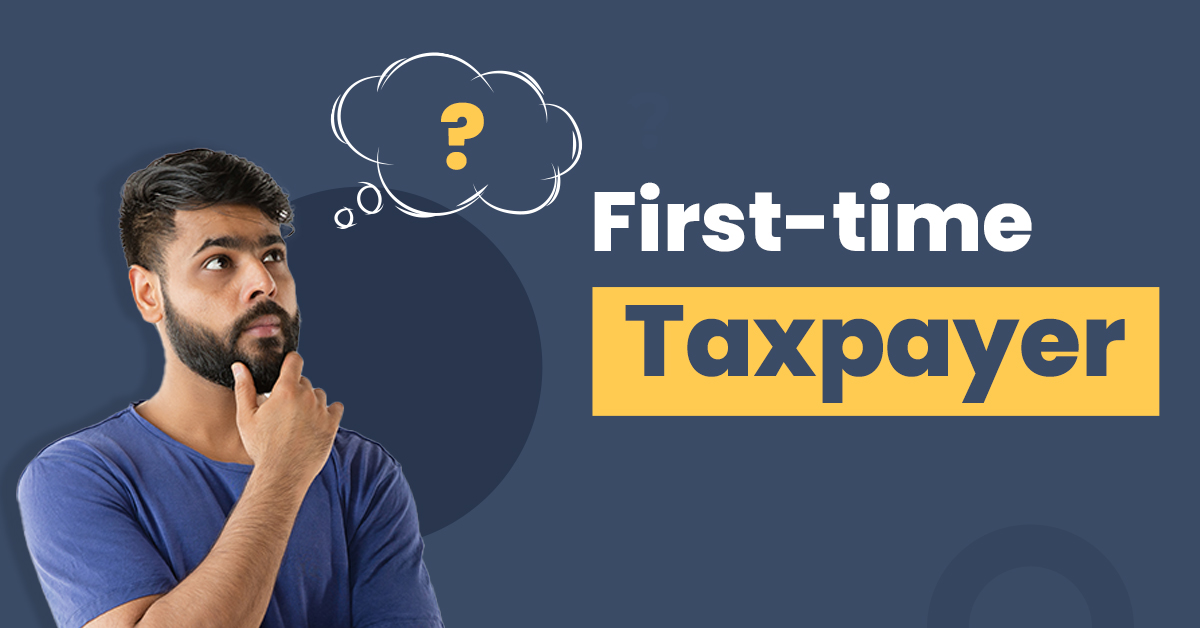First-time Taxpayer? Understand everything about Income Tax Rebate


The income tax in India is a tax levied by the government on individuals, Hindu Undivided Families (HUF), partnership firms, Limited Liability Partnerships (LLP) and corporates. The amount of this income tax depends on your income/profits. In the case of individuals, the income tax is levied as per their respective tax slab.
While it is mandatory to pay tax on your income every year, there are ways to reduce your tax liability and even claim tax rebates. For instance, if your taxable income is less than Rs.5 lakh per year, you are eligible for an income tax rebate under Section 87A. This will allow you to obtain a rebate of up to Rs. 12,500 per year. Similarly, there are other routes of reducing your taxable income through certain sections of the Income Tax Act such as 80C, 80CCC, 80CCD, 80D, and more.
To avoid paying excess taxes, use this comprehensive guide on income tax rebate eligibility and calculation.
What is Income Tax Rebate?
An income tax rebate is a refund on taxes that you can claim when your tax liability is less than the taxes you have paid. To claim refund, you can approach your HR, and they will do the exemption and deduct it at the source. If some rebates cannot be deducted at the source, you will need to file your income tax returns and claim refund. After that, the Income Tax Department initiates the refund, and the excess tax and interest are paid back to you.
Income Tax Slabs
Currently, all individuals and HUFs can choose between the old and the new tax regimes which have the following tax slab rates:
| Annual Income | New Tax Regime | Old Tax Regime |
| Rs 0.0 – Rs 2.5 lakh | No Tax Pay Income Slab | No Tax Pay Income Slab |
| Rs 2.5 lakh – Rs 3.00 lakh Rs 3.00 lakh – Rs 5.00 lakh | 5% (tax rebate u/s 87a is available) | 5% (tax rebate u/s 87a is available) |
| Rs 5.00 lakh- Rs 7.5 lakh | 10% | 20% |
| Rs 7.5 lakh – Rs 10.00 lakh | 15% | 20% |
| Rs 10.00 lakhs – Rs 12.50 lakh | 20% | 30% |
| Rs 12.5 lakhs – Rs 15.00 lakh | 25% | 30% |
| More than Rs 15 lakh | 30% | 30% |
While the new tax regime offers lower tax rates, under the old regime you can claim various tax-deductions available under the Income Tax Act.
Income Slabs with no Tax Liability
If you are below 60 years of age and have an annual income up to Rs.2.5 lakhs, you are not required to pay income tax. Further, for individuals above 60 years but less than 80 years of age there is zero tax liability up to Rs 3 lakh of annual income. And individuals above 80 years are not required to pay tax up to Rs 5 lakh of income.
How to Get a Tax Rebate?
Sometimes, the tax you have paid to the government is higher than your actual tax liability. Such situations can arise when the advance tax, self-assessment tax paid and/or TDS deducted from your income is higher than the total tax liability. To claim a tax rebate, you must first file your income tax ( ITR-1 or ITR-4 form) online.
Eligibility to claim rebate under Section 87A
To be eligible for tax rebate under Section 87A, you must meet the following conditions:
1. Must be a resident of India
2. Corporations, Firms and HUFs cannot avail this benefit
3. Total taxable income (after reducing tax-deductions) should be upto Rs.5 Lakh
4. Maximum tax rebate that can be claimed is Rs.12,500.
How to Calculate Tax Rebate under section 87A
An income tax rebate is essentially a refund amount paid at the end of the fiscal year to an individual whose tax liability is less than the tax he/she has paid. Here are the steps involved to claim a rebate of Rs.12,500 under Income Tax Section 87A:
Step 1. First, calculate your total gross income in the previous financial year
Step 2. From this, subtract all the tax deductions that you have claimed for tax-saving investments
Step 3. Now, this is your Gross Total Income after tax deductions, i.e. your taxable income for the financial year
Step 4. On this amount, estimate your gross tax liability, but do not add cess to the amount
Step 5. You can claim the 87A rebate on your gross tax liability (before adding cess) to arrive at the net tax liability
Let us take an example to understand this better:
Ms. Isha is below 60 years and has a gross annual income of Rs. 5,50,000 lakhs. To enjoy a tax deduction of up to Rs. 1,50,000 under Section 80C, she invested in schemes such as PPF, ELSS, etc. This reduced her net taxable income to Rs. 4,00,000.
Now, because her net taxable income is less than Rs. 5 lakhs, she can further claim a tax rebate under 87A up to Rs. 12,500, or the total tax payable, whichever is lower. So, her total tax payable in an assessment year is:
| Particulars | Amount |
| Gross Annual Income | ₹ 5,50,000 |
| Deduction under Section 80C | ₹ 1,50,000 |
| Net Taxable Income (After Deduction) | ₹ 4,00,000 |
| Income Tax Payable (5% for income ranging from Rs.2.5-5 lakhs) | ₹ 7,500 |
| Tax Rebate under 87A | ₹ 7,500 |
| Total Tax Payable in an Assessment Year | NIL |
Types of Tax Deductions
In order to claim an income tax deductions, one must file the income tax return within a specified period. Here is a list of some of the different types of tax deductions available:
1. Section 80C: Taxpayers can use this tax deduction to lower their taxable income by Rs.1.5 lakh every year. This tax-exemption is applicable when you invest your income in investments such as ELSS, NSC, PPF, SCSS, 5-year Bank FD or 5-year Post Office Term deposits, voluntary and mandatory PFs, life insurance premium, pension fund or annuity, principal on home loan, children’s tuition fee.
Section 80C includes subsections: 80CCC, 80CCD (1) , 80CCD (1b) and 80CCD (2).
2. Section 80D: Under this section, you can claim a deduction of Rs.25,000 for paying insurance premiums for self, spouse and dependent children. If your parents are below 60 years of age, you can claim an additional deduction of up to Rs 25,000 for their insurance. If the parents are over 60, the deduction amount is Rs 50,000.
3. Section 80EE: Taxpayers can avail an income tax deduction on the interest payments of their home loan. You can claim a maximum deduction of Rs. 50,000 per financial year if you meet the following criteria:
A) The home loan amount is up to Rs.35 lakh and the cost of residential house is less than or is Rs.50 lakh.
B) The house bought or constructed using the home loan is the only house owned by the taxpayer at the time of sanctioning the loan.
4. Section 80TTA: The interest that you earn on a savings account is chargeable to tax under ‘Income from Other sources’. However, Section 80TTA of the Income Tax Act allows individual taxpayers and a Hindu Undivided Family to avail a deduction of up to Rs 10,000 on this interest income. This deduction is not available on interest income from fixed deposits, recurring deposits, or corporate bonds.
5. Section 80G: Donations made by taxpayers to certain charitable institutions and organisations are exempt under Section 80G. These donations are eligible for deduction up to either 100% or 50% with or without restriction. However, individuals can only make contributions of 10% of your Gross Total Income.
6. Section 80E: Interest paid on an education loan can be exempt under Section 80E. This loan may have been taken for yourself, your spouse, your children, or a student for whom you are a legal guardian.
7. Section 80DDB: Individuals and Hindu Undivided Families residing in India can claim this deduction in income tax if they are undergoing any medical treatment for cancer, kidney failure, thalassemia, etc.
Bottom Line
Both salaried and self-employed people can save money and lower tax liability by filing an income tax under different sections of the Income Tax Act. In simple terms, an income tax rebate is the money paid back to you if you have paid excess tax. Hence, when the tax liability is less than the tax paid, the refund is referred to as income tax deduction.
FAQs
How is income tax rebate calculated under section 87A?
To calculate rebate under section 87A, take your gross income estimate and subtract the available tax deductions. Now if your gross taxable income is up to Rs. 5 Lakh, you can claim a tax rebate up to Rs 12,500 or the total tax payable, whichever is lower.
What is the minimum income to file ITR?
While it is advisable to file ITR if your annual income is above ₹2.5 lakh, you should do so even if it is below ₹2.5 lakh. If the earning individual has gone through TDS from its recruiter, then in that case ITR filing can help them to claim tax refund.
How long will it take for income tax refunds to be reflected in my account?
The average wait time for an income tax refund is between one and four months. However, refunds for salaried individuals may be credited to their registered accounts within two weeks for the most recent income tax returns submitted.
Can a company or a firm take the benefit of Section 80C?
No, the provisions of Section 80C apply only to individuals or a Hindu Undivided Family (HUF).



